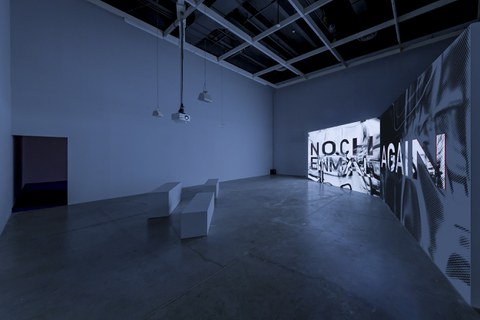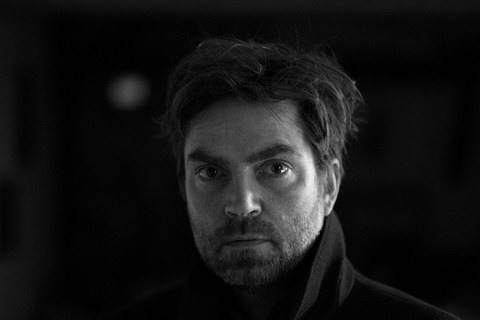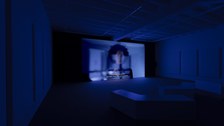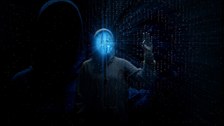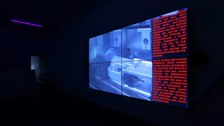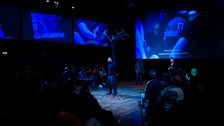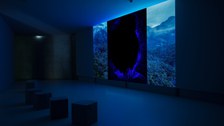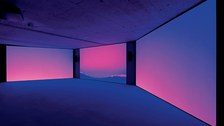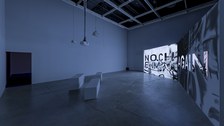Artist in Residence 2025: Mario Pfeifer
From April to September 2025, Mario Pfeifer will be conducting artistic research at the Schaufler Lab@TU Dresden at the Dresden University of Technology (TUD) on the guiding theme of the second funding phase "Data Worlds. Socio-technical and cultural syntheses of new realities".
With his film project "Beyond the Binaries", Mario Pfeifer plans to develop an AI-driven, dynamic video installation that focuses on the complex relationship between humans and artificial intelligence (AI) and asks fundamental questions about what it means to be human and to exist in data-driven worlds.
Digital technologies are a natural part of our living environment, and a large part of our actions are consequently shifting to virtual spaces. These are neither gimmicks nor simulations, but real actions with real consequences. As in the physical world, our digital behavior can be both morally good and reprehensible. "Beyond the Binaries" examines the extent to which, in times of deep fakes and dogmatic filter bubbles, the uncontrollable darknet can be countered by normative values and feelings such as affection, which manifest themselves psychophysiologically as reactions to certain stimuli or situations.
In "Beyond the Binaries", the non-binary protagonist:in Alba lives together with an AI avatar in a white, timeless space in the near future (2054). Over the course of 24 hours, the viewer observes Alba's daily routine, which consists of just a few activities: sleeping, drinking, reading, meditating, looking out of the window, exercising. Alva lives in a dematerialized environment in which all her needs and desires can seemingly be fulfilled digitally. As a human being in a reality permeated and controlled by AI, Alba asks herself fundamental questions about existence, affection and identity.
Her counterpart, the AI avatar, enters into a dialog with her - a hallucinatory chamber play about being, affection, rejection and emotionality. The AI acts as a dynamic answer giver of fundamental questions, its reactions are based on an autonomous large language model, trained on biographical details of the performers:in as well as philosophical and social science texts - from Plato and Kant to Butler and Agamben, constantly expanded by daily news in the form of push-up messages.
In collaboration with Prof. Michael Färber, Chair of Scalable Software Architectures for Data Analytics and other leading AI experts from the field of machine learning at TUD, a trained and simultaneously learning and autonomously acting AI is being developed that appears in exchange and in response to an analog person asking questions.
The central question is what data is needed to create morally good realities and how, in turn, reality is constantly transformed by digital "evil": The distinction between illusion and reality is of crucial importance here.
The accompanying presentation for Mario Pfeifer’s Schaufler Residency@TU Dresden 2025 was postponed, as the artistic-scientific development process is not yet completed.
Mario Pfeifer (*1981 in Dresden, lives and works in Berlin and Dresden) is a visual artist and filmmaker. In his work, he deals with current discourses and social disruptions when he places the understanding of democracy, racism, technology and artistic research with regard to the socio-political, ecological, technological and economic realities of our time at the center of his work. In fall 2025, Pfeifer will present the first results of his collaborative research at the TUD in the Gallery of the Office for Academic Heritage, Scientific and Art Collections in the TUD's Görges Building; in addition, the KOW Berlin 2026 and the Wexner Center for the Arts (USA) 2027 will show solo exhibitions of the artist.

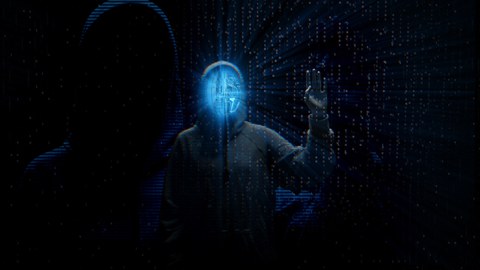

© Courtesy the artist & KOW, Berlin (#blacktivist (2015), installation view, Ludlow38, New York)


© Courtesy the artist & KOW , Berlin (Corpo Fechado (2016), installation view, GfZK Museum of Contemporary Art, Leipzig)

© Courtesy the artist & KOW, Berlin (Approximation in the digital age to a humanity condemned to disappear (2015), installation view, KOW Berlin) © Ladislav Zajac
